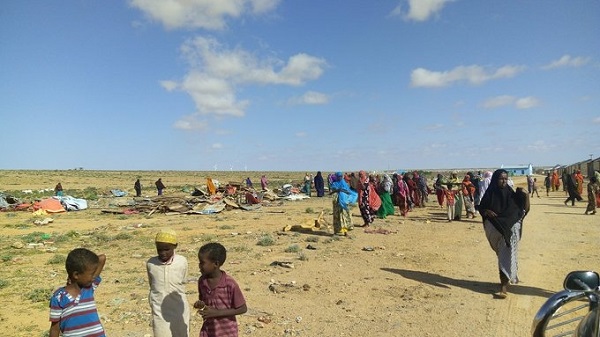
Mogadishu, (Asian independent) The UN migration agency, the International Organisation for Migration (IOM), has said it requires more than $50 million to reach 2.5 million people affected by the drought by the end of 2023.
IOM’s Deputy Director General Amy Pope, who ended a four-day visit to Mogadishu, the capital of Somalia, and Baidoa, said on Tuesday that the crisis in Somalia is deepening, noting that with the fifth failed rainy season imminent, humanitarian actors require greater resources to help communities in need survive, rebuild and foster resilience.
Pope added in a statement issued in Mogadishu that the situation in Somalia which is facing severe drought demands the world’s urgent attention, solidarity, and support, Xinhua news agency reported.
“The communities I met are being devastated by climatic change, despite Somalia being one of the least contributors to global emissions. Millions do not have sufficient water or food. Hundreds of thousands of people could die,” she said.
According to Pope, time is running out for Somalia where rural communities are facing the dire consequences of a climate emergency as they grapple with decades of instability, disease and economic crises.
Without a rapid increase in assistance, the Somalia Food Security and Nutrition analysis which was launched last week projects that famine will be a reality in parts of the country by October.
The drought has forced more than 1 million people to leave their homes in search of water, food, and humanitarian services, according to the UN.
According to IOM, over 80 per cent of the displaced are women, children and the elderly who are bearing the brunt of the crisis, and most people have settled in towns and cities where support services are already greatly overstretched, and sanitation is poor.
The last famine in Somalia was declared just over ten years ago in 2011, which led to the death of an estimated 250,000 people.
The current drought has already claimed the lives of at least 730 children, but the true figure could be much higher, as 7.8 million people are facing extreme food shortages, the IOM said.
“Without sufficient funding, millions of people in Somalia will be left to suffer the fallout of devastating hunger, disease and displacement. The impact of this crisis will be felt by generations to come,” Pope said.







